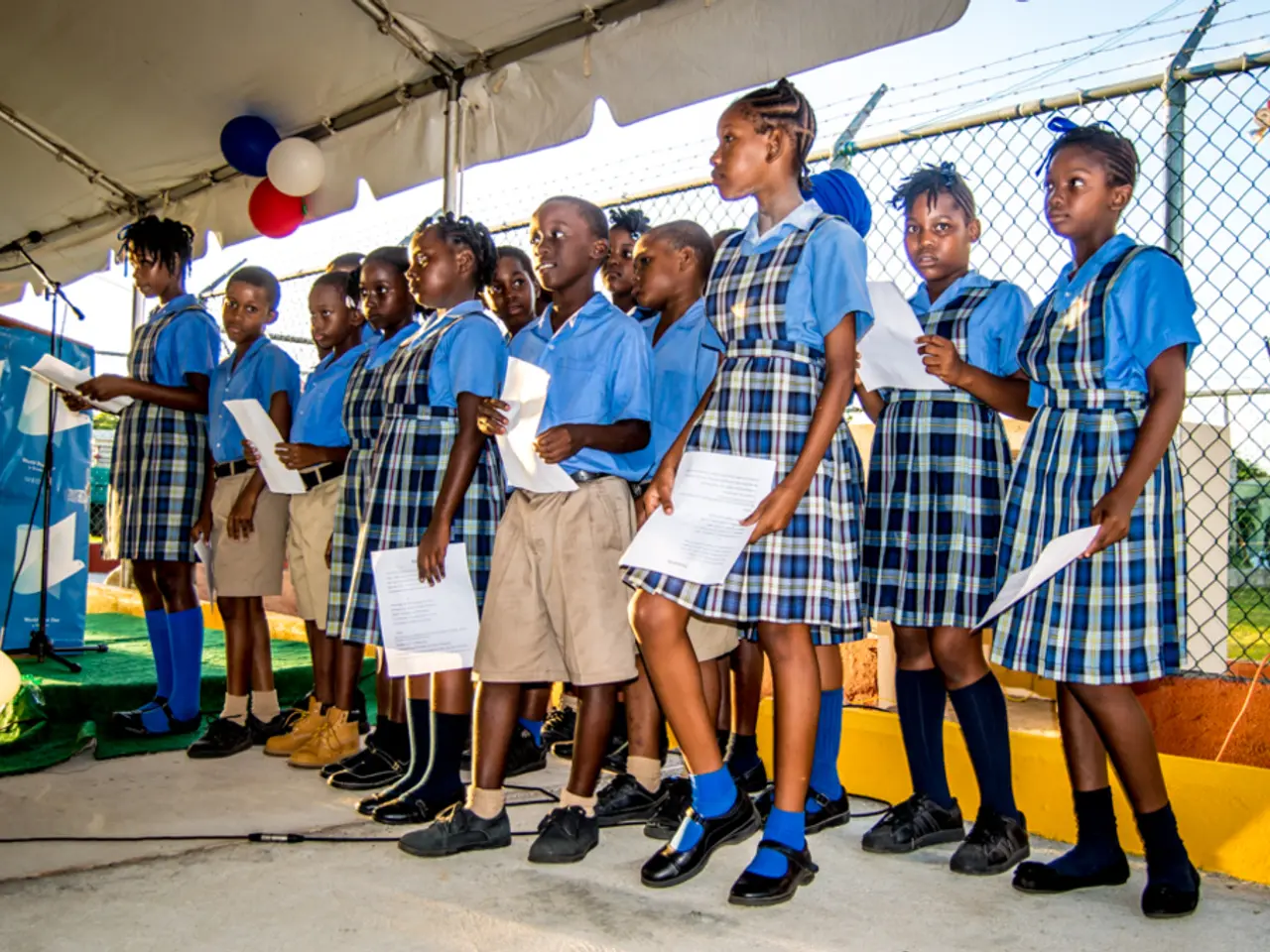Prioritize mental health considerations on the list of preparations for students as they get ready to head back to the classroom
Preparing for the New School Year: A Mental Health Check-In for Children
As the new school year approaches, many children, especially those with a history of mental health concerns, may feel stressed and uncertain. To help ensure a smooth transition, Dr. Mary Shea from the University of Kentucky advises a mental health check-in for children before school.
One key approach is Universal Mental Health Screening. This involves administering brief, age-appropriate mental health check-ins to all students regularly, ideally at the start of the school year. These screenings help identify early signs of depression, anxiety, or other concerns before symptoms escalate. Illinois, for example, plans to require all school districts to offer annual mental health screenings for students in grades 3 through 12 starting in the 2027-28 school year, providing resources and free screening tools to schools to facilitate this.
Another important strategy is Behavioral Observations. Parents, teachers, and school staff should watch for changes in a child’s behavior that may signal mental health struggles, such as withdrawal from friends, increased irritability, refusal to attend school, neglect of personal hygiene, physical complaints, or expressions of hopelessness.
Communication and Referral Systems play a crucial role in this process. After screening or noticing warning signs, it is important to communicate with the child and their family sensitively, collaborate with school counselors or psychologists, and refer the child to in-person treatment or community mental health professionals if needed. About 70% of U.S. schools that perform screenings offer in-person treatment, and over half refer to outside specialists.
Training for School Personnel is also essential. Educators and counselors benefit from training that helps them interpret screening results and recognize subtle mental health issues early, allowing effective interventions.
Resource Awareness is another key component. Utilizing centralized resources like BEACON in Illinois, which consolidates behavioral health information for families, can aid in accessing appropriate services.
In addition to these strategies, it's important to show empathy towards the child's concerns, listen to them, and engage in open conversations about their feelings for the upcoming school year. Scheduling meal and snack time, setting limits to screen time, and getting back into routine before school starts can also help ease the child back into their school year routine. Starting a conversation with the child or teenager about their feelings for the upcoming school year is recommended.
By combining universal screenings with vigilant behavioral monitoring and accessible support services, we can help ensure a smooth transition for children, improving academic engagement, social relationships, and long-term wellbeing.
Engaging in conversations about feelings can help prepare children for the school year, especially discussions about their concerns and expectations. It's recommended to start such a conversation with your child or teenager.
Taking health and wellness seriously, science and health-and-wellness professionals often advocate for regular health screenings, including mental health screenings. Schools like those in Kentucky, can play a significant role in administering these check-ups, helping identify early signs of mental health concerns.
Artistic activities, beyond their educational benefits, can also contribute to children's mental health. Encouraging children to participate in arts and crafts, music, or drama might help them express their feelings and cope with any stress related to the new school year.




